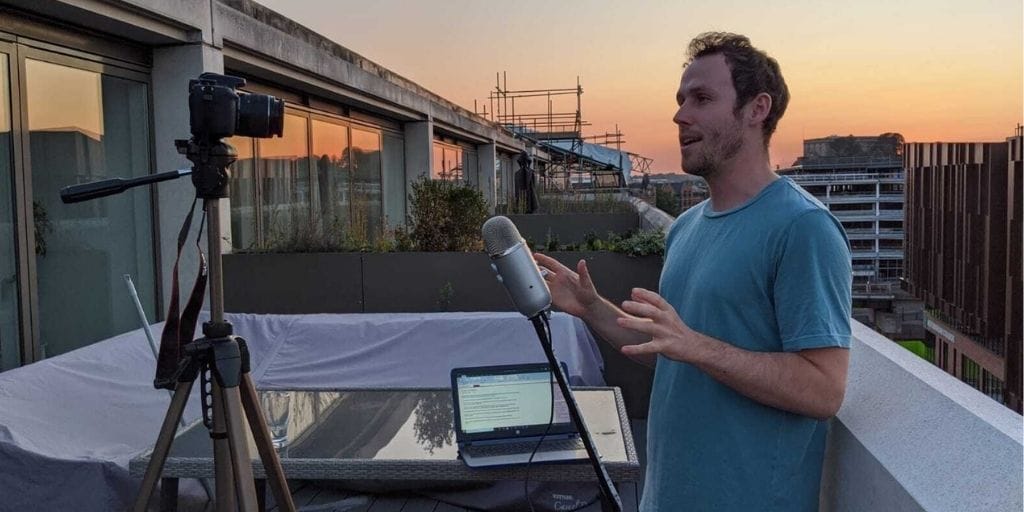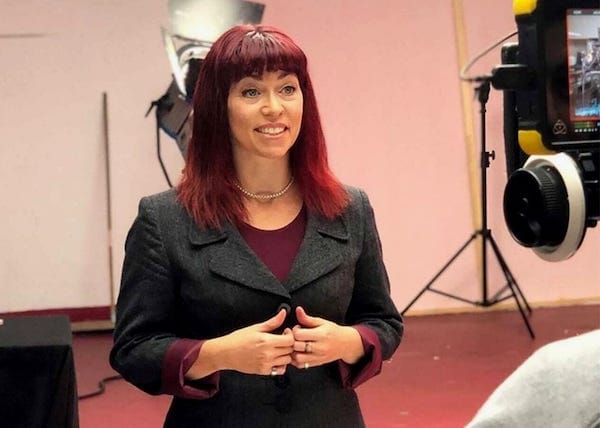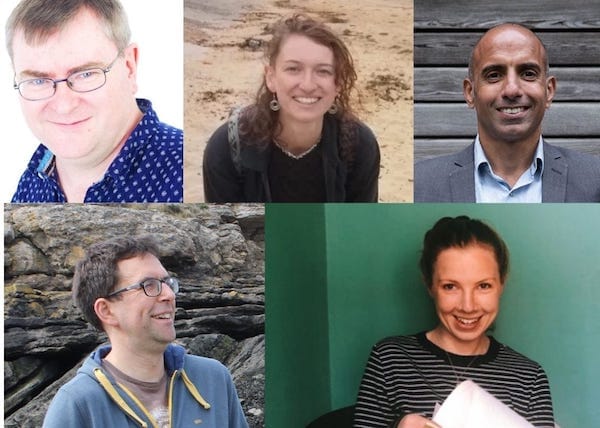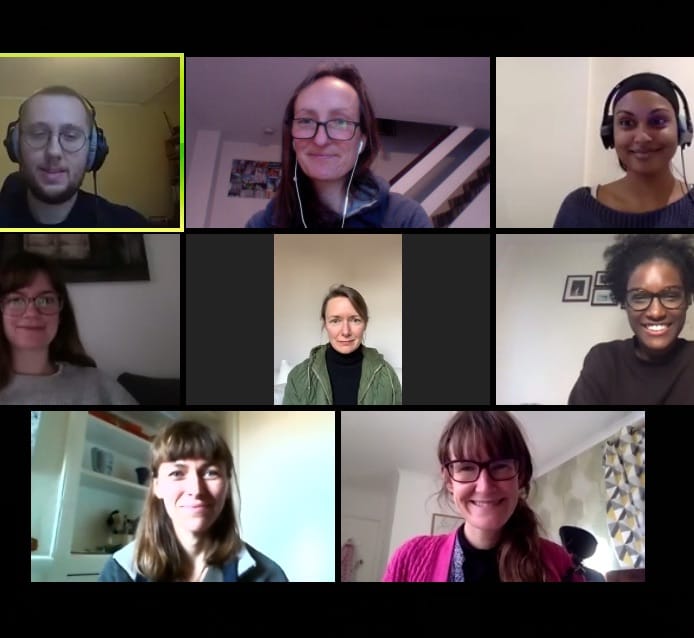This is episode two of our 2021 podcast series. Listen to the episode here and find other episodes and previous series here.

This month we welcome Finlay Asher, a former aerospace engineer, who will be exploring the question:
Can we fly carbon neutral?
Finlay spent eight years working in the aviation sector designing future aircraft & engine concepts. He quit his job to focus on campaigning for increased regulation in the industry and founded Green Sky Thinking, a social media channel that shares information about the realities of the industry moving to net zero.
In February 2020 the UK Aviation Industry pledged to make flying net zero by 2050. A lot of this is going to rely on technology. So let’s kick off by asking Finlay to explain about hydrogen planes.
Finlay:
In September last year, Airbus said hydrogen planes would be ready by 2035 for commercial flights. Hydrogen in its natural form as a gas takes up a huge amount of space. Turning hydrogen into a liquid reduces the volume, but even in its most compressed form it’s still four times the volume of jet fuel.
In addition you have to cool it to -250ºC and put it at high pressure in order to make it into a liquid. Aircraft today have their fuel tanks in their wings, but this wouldn’t be possible for hydrogen tanks, so that means hydrogen planes are either very bulky and large, or would carry a reduced number of passengers. Either of these things are problematic for airlines and will raise the cost of flying.
Importantly, the designs and tests haven’t started yet. It takes the best part of 10-15 years for something to come into operation, and we’re way behind already. We’re looking at 2035 for the first aircraft, and we won’t have full fleets until 2050 at the earliest. So hydrogen is not a solution to the climate change problem.
Flight Free UK:
What about electric planes?
Finlay:
Much like with electric cars, it depends on where you’re getting your electricity from. Also there's an environmental impact in creating electrical components and creating batteries. So electric technology is not just a licence to make as many cars or planes as possible – we also need to reduce our energy consumption.
If you look at global energy consumption, we currently consume around 15 times the amount we can currently generate with low-carbon sources. Most of our renewable output is currently from hydro-power which can’t really be scaled. The amount of electricity we get from solar and wind is going up, but in total it only provides 3% of our energy: there's a long way to go until we decarbonise our energy. Travel is more efficient to go on the ground so from an energy consumption perspective, it's always better to stay on the ground.
Batteries are 40x worse at storing energy than jet fuel, and they don’t lose their weight as they get discharged, whereas for jet fuel, the plane gets lighter as you use it. It's likely that the first commercial electric aircraft will carry less than 10 people and be flying for less than one hour, which is an easy range for bus or train. Electric planes do have their place, e.g. in Norway where there are a lot of islands/mountains etc, but it doesn't make sense to have lots of electric aircraft where there are other options such as public transport.
Flight Free UK:
What about biofuels?
Finlay:
Sustainable aviation fuels (SAF) are a cornerstone of the airline industry’s sustainability strategy, but to be honest it's a bit of a marketing ploy. Alternative fuels have been in process for 15 years and there have continually been promises as to how much sustainable fuel we would be using, but the targets are continually missed. There was a target for 25% sustainable aviation fuel by 2020, but usage is currently at less than 0.01%.
These fuels are actually very damaging. Sustainable aviation fuel mostly refers to biofuels e.g. growing crops directly, or using waste products from plants you’re growing for something else, or post-consumer waste, or re-claiming waste from sewers. But these ‘waste’ biofuel sources are not nearly enough to cope with the current demand for aviation fuel. In order to scale up, you’d need to cover the land that we currently use for food consumption in biofuel crops. It’s basic maths that we can’t use biofuel with the current rate of growth of population and aviation, without adverse effects e.g. land grabs, deforestation etc.
Biofuel has been scaled up for road transport and it's had a devastating effect on land in places like Malaysia, Indonesia and some countries in South America. Palm oil plantations really affects biodiversity. Overall, using biofuel can be worse than using fossil fuel. The aviation industry should not be talking about biofuel as a solution, but they are relying on it.
Flight Free UK:
The other thing that airlines tell us is that we can fly carbon neutral if we just pay a little bit extra to offset our emissions. We did a podcast episode in last year’s series about offsetting with Dr Roger Tyers which gives a great run-down of why carbon offsetting is not a solution.
There are loads of problems with offsetting because even though tree-planting is great, it’s very difficult to calculate if trees planted will at some point in the future absorb the amount of CO2 that your flight emits today.
So, the final word to Finlay: can we fly carbon neutral?
Finlay:
In a word, no!
Thanks to Finlay for joining us. You can hear more from Finlay here.
Listen to the full episode here and find other episodes and previous series here.
Voiceover: L. Sophie Helbig. Soundtrack: Chasing Balloons by Yeti Music.




